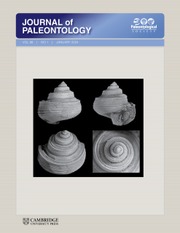Article contents
New Pleistocene remains of megalonychid ground sloths (Xenarthra: Pilosa) from the intertropical Brazilian region
Published online by Cambridge University Press: 24 June 2016
Abstract
The Pleistocene fossil sloth Australonyx aquae De Iuliis, Cartelle, and Pujos, 2009 (Mammalia, Xenarthra, Megalonychidae) was described from the intertropical region of Brazil. However, its mandible was not known and only cursory descriptions of the ear ossicles were included. The mandible was subsequently recognized among the remains originally collected from the type locality, and belongs to the holotype individual. As a particularly important skeletal element for specific recognition, it requires description to complement our understanding of this species. The ossicles, usually poorly represented in the fossil record, require further description to allow differentiation from those of other sloths. Comparisons of the mandible and ossicles are conducted with homologous elements of the contemporaneous and sympatric Ahytherium aureum Cartelle, De Iuliis, and Pujos, 2008, the only other megalonychid sloth known from intertropical Brazil, and reinforce the distinction between these two species detailed in their initial descriptions. Comparisons with other sloths (e.g., Acratocnus, Megalonyx, Neocnus) also reveal differences with Au. aquae in such features as form and size of the caniniform tooth, angular process, and mandibular condyle. Differences among the malleus and incus of Au. aquae and several species of other sloth clades reveal clade level distinctions among Megatheriidae, Nothrotheriidae, and Megalonychidae. A well-preserved skull from the Brazilian state of Rondônia is noted as probably belonging to Au. aquae. This skull cannot be assigned formally to this species because it is not deposited in a recognized institution, but it does extend considerably the known range of the species.
- Type
- Articles
- Information
- Copyright
- Copyright © 2016, The Paleontological Society
References
- 11
- Cited by


